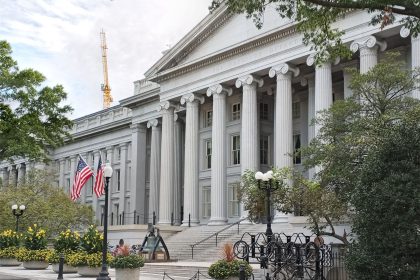‘Building Resilient Communities’ Gives Local Concerns a Voice in DC
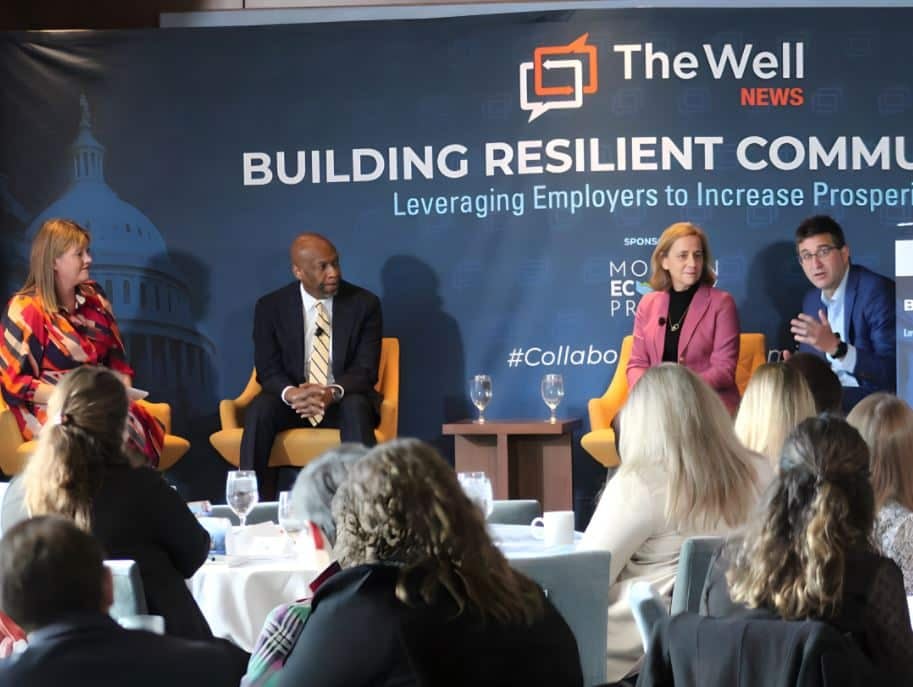
WASHINGTON — What consumes those inside the beltway and in mainstream media doesn’t always reflect the realities of mainstream Americans or the communities in which they live. That was the consistent theme that emerged from last week’s “Building Resilient Communities” forum.
Hosted by The Well News and co-sponsored by the Modern Economy Project and TechNet, it was evident during the 90-minute forum that House speaker votes and congressmen who randomly pull details of their resumes out of thin air took a back seat to concerns over how to keep Main Street thriving and where to look for the next generation of family supporting jobs.
“We had a big sewer pipe break two days ago,” New Castle County, Delaware, County Executive Matt Meyer said. “It wasn’t a Democrat problem or a Republican problem, it was a flushing the toilets problem.
“In my community and, I’m sure, in those of the people I’m sharing the stage with, governing is stuff we have to get done every day. Gridlock is not an option.”
Another such community is Manchester, New Hampshire, where the city government has fostered economic development through a series of creative partnerships.
On hand to tell Manchester’s story was Joyce Craig, who in 2017 became the first woman ever elected to be the city’s mayor.
Prior to that history-making bid for office, Craig served as a member of the Manchester School Board and, later, on the city’s board of aldermen.
In 2022, she oversaw the city’s participation in a regional application to receive funding under the auspices of the Biden administration’s Build Back Better regional challenge.
The challenge was part of the American Rescue Plan, which President Joe Biden signed into law on March 11, 2021.
The aim of the challenge was to award $1 billion to 12 regional coalitions to help them transform their regional economy by growing a specific industry sector. Each successful coalition, typically a group with five to eight members, received between $25 million and $65 million to further the economic development goals.
The city’s coalition included other local governments, colleges and universities, including Southern New Hampshire University and the University of New Hampshire, representatives of local industry, the city transit authority and its airport.
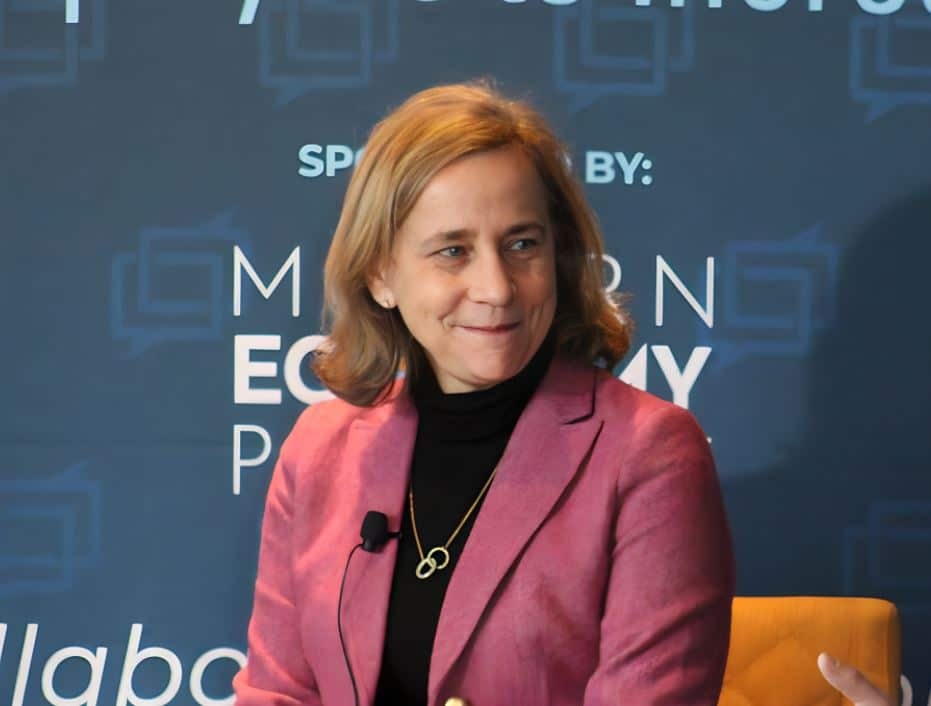
“We worked on the application for about a year, and in the end we were fortunate to be one of the 21 winners,” Craig said.
“As a result, we have $54 million coming into the city … and our intention is to use it to make us a center of biofabrication,” she said. “We estimate the sector could create as many as 7,000 direct or, what we call ‘family sustaining’ jobs, and over 30,000 indirect jobs.”
Craig went on to explain that a major goal of the applicants was to bring education to the forefront to provide the workforce training needed to support any serious economic development effort.
“With that piece in place, the next step is to build out our manufacturing space to provide support to startup collaboratives,” she said. “All of this will bring new business into the city of Manchester … and [the] city is playing an additional role, making sure that transportation is available … because as important as it is to create these jobs, it’s equally important to provide individuals with the public transportation they need to get to these jobs from different parts of the city.”
But, Craig went on to explain, this kind of collaboration is nothing new for the city and citizens of Manchester. Four years ago, for instance, the city’s business community came together and formed a nonprofit, called Manchester Proud, to raise millions of dollars for the city’s underfunded public school system.
“That grew out of the business community itself coming forward and saying public schools are integral to its success,” she said.
“We now have a strategic plan to follow, and we’ve been able to hire an equity director and other necessary positions in the district,” she continued. “We’ve also been able to make sure that the students have the curriculum necessary to meet the job needs in our local community.”
Workforce Development
As Craig spoke, another member of the local perspectives panel nodded his head knowingly.
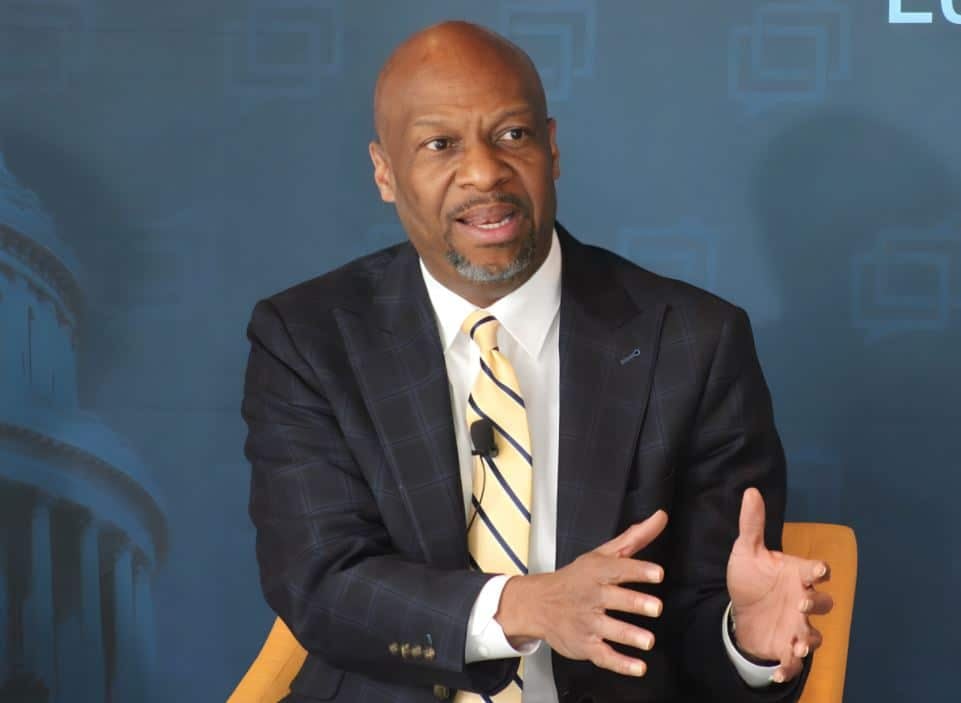
A native Washingtonian, Antwanye E. Ford, president and CEO of Enlightened, Inc., is a board member for the National Association of Workforce Boards, a group dedicated to improving the process of workforce development.
Enlightened is a Minority Business Enterprise certified by the following states: Maryland, Alabama, Florida, Illinois, New Jersey, New York, Ohio and Pennsylvania.
Asked to offer his perspective on the kinds of efforts Manchester is undertaking, Ford told attendees that for context’s sake, it’s important to realize Washington, D.C., is unique among American communities.
“Washington is really two cities,” he said. “There’s ‘Washington,’ which is where you find all the beautiful monuments standing in the shadow of congressional and political power, and then there’s the district, which is the city people actually live in.
“That duality, I think, makes it hard for people to understand the economic development needs of that second city. If you come from out of town, you most often are keeping to the beautiful downtown and you see all kinds of signs of economic development.
“What most fail to see is that other city outside the bubble … the one in which there can be a 20-year difference in life expectancy, depending on what ZIP code people live in,” Ford said.
“To cite another example, let’s talk about the massive wealth gap in this city,” he continued. “In Washington, D.C., the average wealth of a White family is $284,000. Meanwhile the average wealth of a Black family here is $3,500.
“So what the National Association of Workforce Boards is doing, locally, is trying to decrease that gap and one thing we’re doing is fostering situations where businesses, large and small, can be part of the solution,” Ford said.
“The strange thing about the economy we’re experiencing now is we have businesses that want to hire people, and we have an untapped reservoir of people in need of work. What we advocate is to make sure that connecting these folks is part of the conversation.
“We need laws in this country — particularly when it comes to economic development, that ensure we’re doing things that encourage disparate communities to meet each other, and get in the same bubble, if you will.”
Making the Numbers Add Up
If there was one panelist at “Building Resilient Communities” who could speak to the intersection of education and economic development, it was County Executive Matt Meyer.
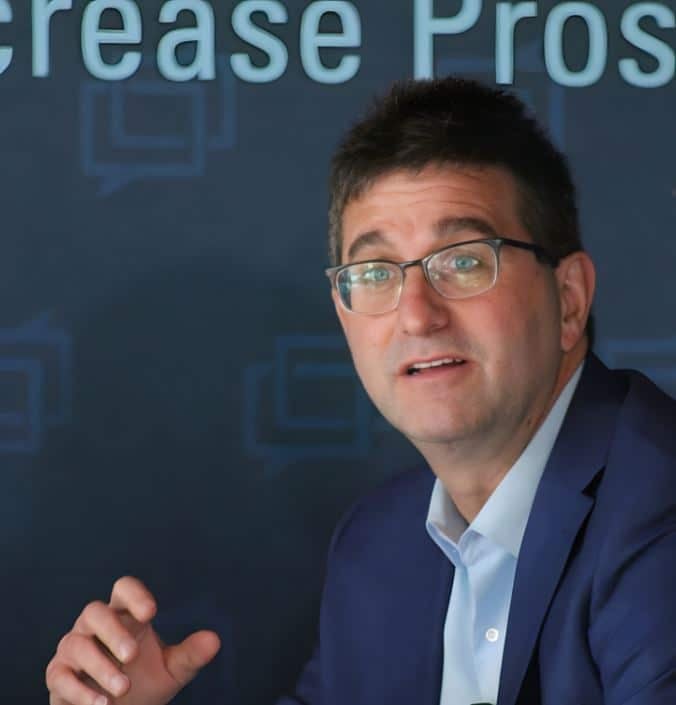
A native of Michigan whose family settled in Delaware, Meyer has worked in politics — including a stint on the first presidential campaign of then-U.S. Senator Joe Biden’s in 1988 (while still in high school) — and was a fourth-grade teacher in Washington, D.C., for three years.
“When I first arrived in Delaware — 35 years ago — there was this phenomenon called ‘Daddy Dupy,’” Meyer said. “Basically, what it referred to was the fact that when I was growing up about half of my friends had a parent or both parents who worked for the DuPont company. I think this was a pretty common phenomenon in small communities across the country, where a single large company kind of captured the local talent pool.
“In return, the company took care of people. It took care of the community. They funded many of our nonprofits and other organizations, and, quite frankly, if they wanted something passed by a local government or the state legislature, they pretty much got it,” he continued.
“Today, things have changed. Where DuPont once employed 35,000 people, its workforce is now much closer to 4,000. As a result, the community can’t lean on that single company the way that it once could. Again, this is something we see across the country. And so like many communities across the country, we’ve been asking ourselves, ‘What do we do, not only to build a more stable new economy, but do we build something that’s much more equitable and fair to all of our residents?’”
One way Meyer has tried to reset economic development in New Castle is through the creation of something called 1,000 Kids Coding, a program that has its roots in his days as a schoolteacher.
“I guess you can say it harkens back to my educational … inclination,” he said in describing the program. “I have a belief that our education system was built in the 19th century and that we’re still training people like we’re in the 19th century. … In other words, if you look at what the majority of our students are learning, you’ll see that it is to participate in the industrial economy.
“And I think this is why, as we were discussing before, we find ourselves in a situation where there are more jobs available than there are people looking for work. We’ve created this huge mismatch of skills, and I see that as a failure of our education system,” the county executive said.
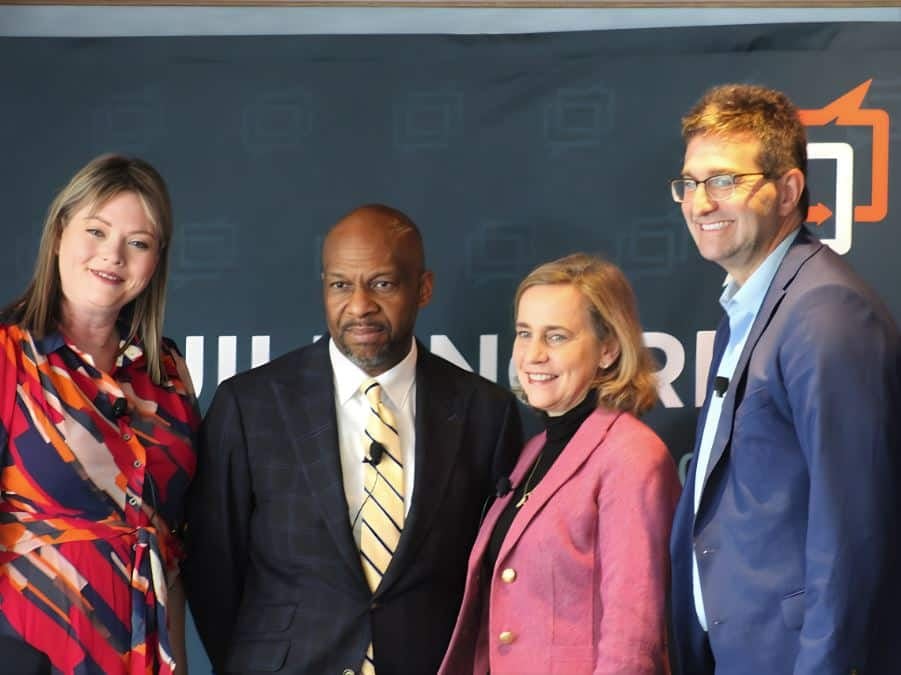
In response, Meyer said, the county in 2018 developed a program in which 1,000 students would be trained in coding and other technological skills, after traditional school hours and during the summer.
“Basically, we’re teaching them to be software developers from the age of 13,” Meyer said.
During the pandemic, New Castle expanded the program to teach coding to adults who suddenly found themselves unemployed.
“The program was intended primarily to benefit bartenders and other restaurant employees,” Meyer explained. “We provide them with training over a three- to six-month period, and what we’re finding is that about 80% of those employees have not gone back to the restaurant industry — which sometimes makes our restaurant association a little mad at me.”
“Which is exactly the new paradigm we’re all experiencing,” said Ford. “And we’re now moving into an era where small and large businesses alike are trying to figure out how to reverse engineer that change that has occurred [since COVID-19] … grasping for ways to more effectively adapt to the hybrid world.
“The questions we’re all trying to answer today,” Ford said, “are: ‘How do we make sure our downtowns and our suburban areas still have a workforce? How do we make sure that people live and work where they are?And how do we stimulate this economy with more entrepreneurship and innovation?’”
Dan can be reached at [email protected] and at https://twitter.com/DanMcCue




















